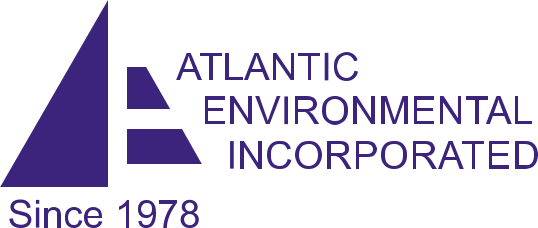What Is Occupational Health?
Posted by atlanticei
If you need occupational health services as discussed in this article, call us at 973-366-4660 or email us at info@atlenv.com for details and a free estimate.
Written by Henry P. Shotwell, Ph.D., CIH, Vice-President, and Robert E. Sheriff, MS, CIH, CSP, President
March 28, 2020; updated October 2021
People engaged in manufacturing, the folks who make the products we all use every day, are exposed to a wide variety of chemical liquids, gases, vapors, fumes, fibers, dust, microbes, and other particulates, which all have the capacity to cause harm. Of course, just because something can hurt you, doesn’t mean that it will. Then again, even ordinary drinking water can be dangerous.
So who determines whether a particular chemical, microbe, or particulate is likely to hurt a worker who is exposed during the course of his or her work activities? Enter the Industrial Hygienist, also referred to as an Occupational Health Specialist or Occupational Hygienist. A more recent term is an Environmental Hygienist!!
Some of the more recent occupational health hazards that have been published are Beryllium, Silica, hexavalent chromium, welding fume, and isocyanates.
The Industrial Hygienist must consider many factors regarding the nature of suspect material and its level of exposure to individuals. What harm are the materials or particulates capable of causing? How long will the worker be in contact with them? Will it be for a full shift, or only for a brief period? Can the material be absorbed through the skin? How does the material enter the body? Is it more harmful to breathe than it is to touch? Will temperature or humidity alter the harmful nature? Does it have an odor that can serve as a warning? What body organs does it affect? Does it have a short term effects (acute) or long (chronic) term effects? Does it cause cancer? Are there government regulations such as OSHA or EPA regulations on a particular chemical?
These questions can be answered by the qualified professional after assessing the workplace conditions, referring to a Safety Data Sheet (SDS) or one of the many available online databases such as the National Library of Medicine’s TOXNET, taking samples/testing for laboratory analysis or making measurements with a direct reading instrument.
After considering all these variables, the expert may conclude that engineering controls or some alteration of work practices are needed to reduce or even eliminate potentially harmful exposures. As a last resort, the use of personal protective equipment (PPE) may be recommended to protect the workers’ health or to be used as an internal control while more permanent – and effective – controls are implemented.
Occupational Health Consultants
We have much more information on our website on this subject. Feel free to browse through the information, contact us using our contact form, e-mail us at info@atlenv.com, or call 973-366-4660. As expert occupational health consultants, we can discuss your individual needs and we can provide you with a complimentary, no-obligation quotation.
Our primary service areas for Occupational Health are New Jersey NJ, New York NY, (New York City), Pennsylvania PA, Connecticut CT, Delaware DE, Massachusetts, (Boston) MA, Rhode Island RI, Washington DC, Wisconsin WI, Maryland MD, Michigan MI, Illinois (Chicago) IL, Virginia VA, Indiana IN, Georgia (Atlanta) GA, Alabama AL, North Carolina NC, South Carolina SC, Tennessee TN, Texas (Dallas, Ft Worth) TX, Oklahoma OK, DC, Arkansas AR, Florida FL. We can service most other areas of the US but additional travel charges will be applied.



